A Tennessee sheriff's office for years seized livestock without warrants. Now, it must pay
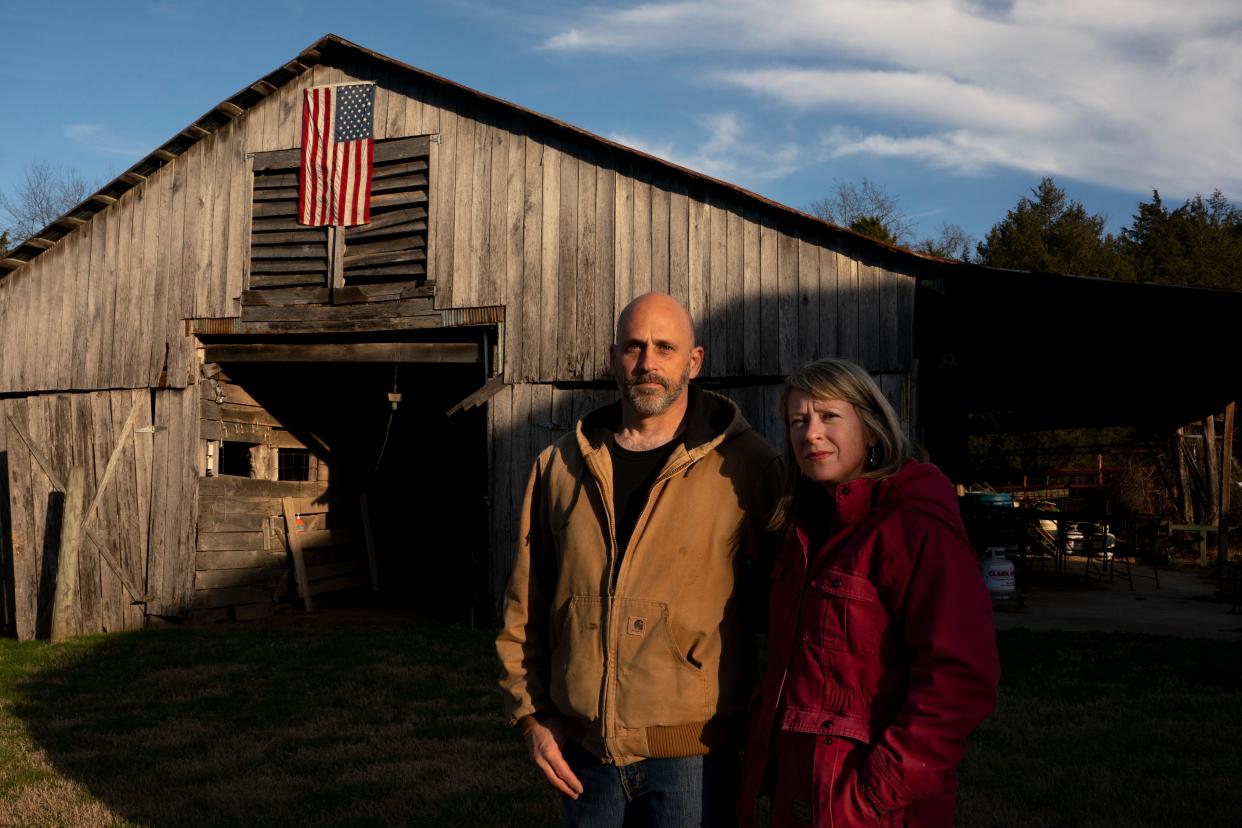
LYNNVILLE, Tennessee — The Marshall County Sheriff’s Office and two of its top employees have been ordered to pay a combined $485,000 to a family after a jury found in October that the office unlawfully seized roughly 50 beef cattle from their Chapel Hill farm.
It wasn't the first time they seized livestock without a warrant, either.
Documents included in a federal lawsuit show that the office for years did not receive warrants before seizing livestock in alleged animal cruelty investigations. In some cases, like the one involving the Chapel Hill farm, the office sold the cattle after seizing them. Then, the county could “anticipate making a profit,” according to a 2020 deposition of Sheriff Billy Lamb.
Now, the family whose cattle were taken has moved out of the county but is still struggling to deal with the trauma of the ordeal.
Missing: 53 beef cattle
For 15 years, Matthew Hopkins, an IT consultant, and his wife Julie Hopkins, a former forensic toxicologist, lived on Mealer Road in rural Marshall County. They had a farm about a mile from their home where they raised beef cattle.
In July 2018, their lives changed.
On July 2, while Julie Hopkins was home schooling their two children, she saw a large man appear near her back door. He was in street clothes but had a badge and a gun on his hip, she said.
When she answered, Marshall County Det. Tony Nichols told her that she needed to drive him to her farm because the sheriff’s office had received a complaint about possible animal mistreatment. When she asked if it could wait until her husband came home from work, or at least until she fed her children, Nichols replied, “No, absolutely not. I need to see them right now,” court records show.
She told The Tennessean she felt she could not refuse. She took Nichols and Jill Johnson, a state investigator from the Tennessee Department of Agriculture, to the farm.
“I was so frazzled,” she said. She said she struggled to open the door of her car because her hands were shaking.
At the farm, Nichols and Johnson observed a dead cow in a stream. Johnson determined several of the cattle were in poor health and without adequate access to food. The Hopkinses claim the main issue was the age of the cattle.
After several phone calls in the following days, Nichols, Lamb and other officers returned to the farm and seized 49 of the family’s cattle without a warrant on the morning of July 13, 2018. They charged Matthew Hopkins with 49 counts of animal cruelty.
Two weeks later, after his attorney requested that the sheriff’s office stay off Hopkins’ property, Nichols obtained his first two search warrants, which he then used to seize the Hopkins’ four remaining cattle, according to the lawsuit.

Meanwhile, Nichols struck a verbal agreement with another farmer to hold the cattle as the criminal case progressed, while the sheriff’s office planned to make Matthew Hopkins compensate it for the cost of the cattle’s upkeep, which he said ended up being $40,000. Due to the high cost, the cattle were sold at auction for roughly $21,000 on Dec. 17, 2018, more than five months after they were seized, Matthew Hopkins said.
He also believes that several of the cattle were missing at auction.
Three days after the cattle were sold, the charges against Matthew Hopkins were dropped on the condition that the proceeds from the sale go toward the upkeep costs that had been incurred. The sheriff’s office agreed to pay the remaining amount.
Matthew and Julie Hopkins sued Nichols and Lamb in their individual and official capacities in federal court in July 2019. The court denied the defendants’ claims for qualified immunity.
After a trial in October 2023, a jury found the defendants unlawfully seized the family’s cattle and unlawfully seized Julie Hopkins when Nichols compelled her to escort him to the farm.
The jury awarded them $375,001.00 in compensatory damages from the sheriff’s office and $100,000 in punitive damages against Nichols, and $10,000 in punitive damages against Lamb.
The Hopkinses were represented by Nashville attorneys Kyle Mothershead, Wesley Clark and Frank Ross Brazil.
More: Tennessee sues farmer with 6,000 cows, missing permits over water pollution concerns
Warrants for livestock seizures: ‘I’ve never seen them obtain one’
According to documents filed in the lawsuit, the Marshall County Sheriff’s Office generally did not obtain warrants before seizing animals for at least five years before the lawsuit.
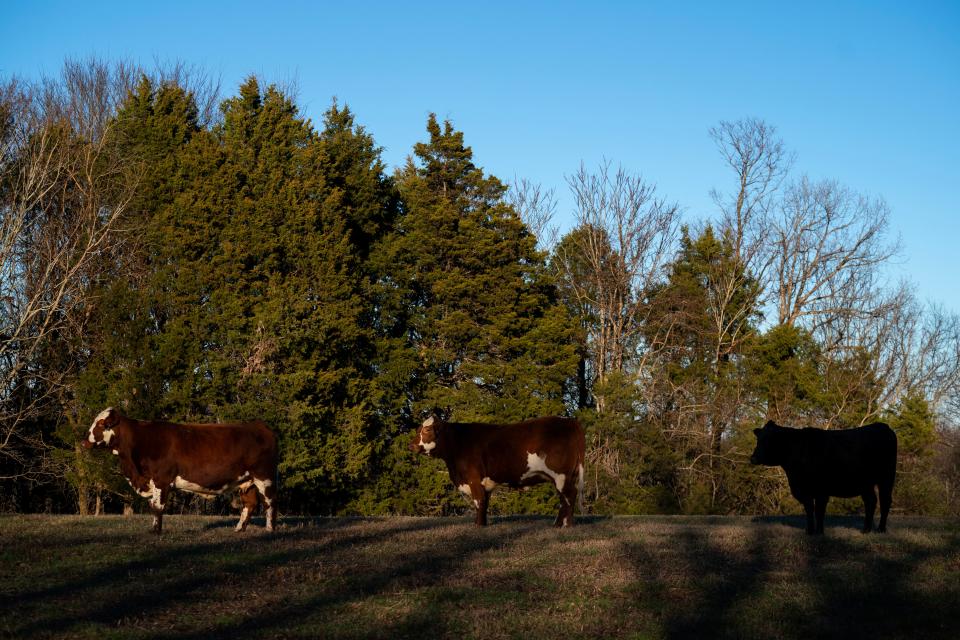
Records of livestock seizures from 2013 to 2017 that the sheriff’s office provided in discovery show the office did not obtain any warrants signed by a judge in animal cruelty cases, Clark said during an August 2020 deposition of Lamb.
When Clark asked during that deposition if he had seen officers or detectives obtain a warrant before searching and seizing livestock, Lamb responded, “No, sir. I — I've never seen them obtain one.” Nichols has handled all of the office’s animal cruelty cases in the last 10 years, according to documents in the lawsuit.
That norm has likely existed for much longer. When asked if it was consistent with his 38 years of experience in the Marshall County Sheriff’s Office that “officers don't get warrants before conducting searches or seizures related to animal cruelty investigations,” Lamb agreed.
Also during the same deposition, Lamb said he “wasn't aware search warrants were not being done.”
The Marshall County Sheriff’s Office did not respond to repeated requests for comment. The Tennessean sent an email and left messages with Nichols requesting comment.
Matthew Hopkins said during an interview he thinks “the law obviously doesn’t apply in Marshall County.”
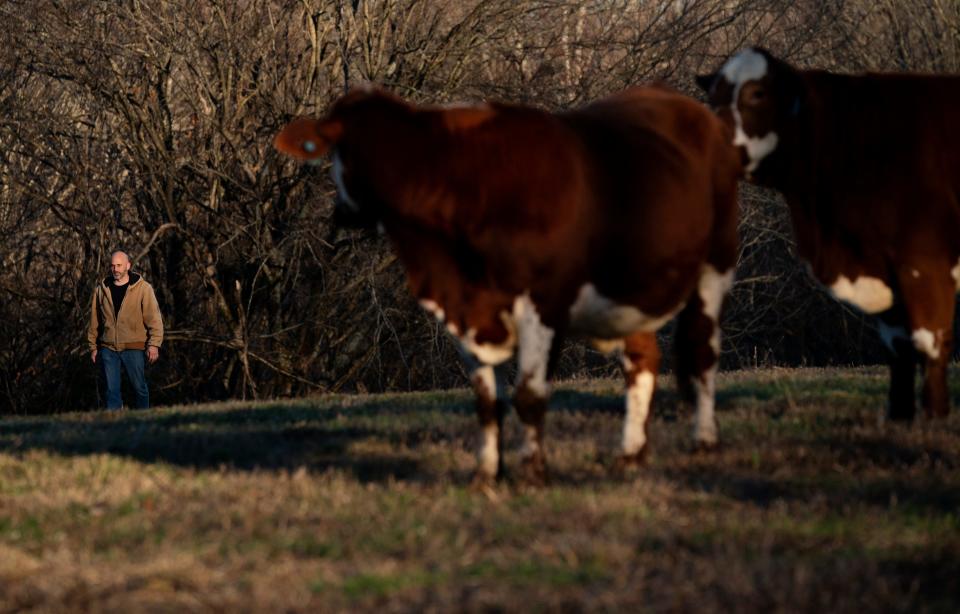
The Tennessee Department of Agriculture said that it routinely assists law enforcement in their animal cruelty investigations, although the department's assistance is not necessary.
The financial arrangement of livestock seizure in Marshall County
Lamb explained during a deposition what the typical financial arrangement is after livestock are seized, which follows roughly the typical asset forfeiture process seen in other law enforcement agencies.
First, livestock are taken to a third party to hold them, then the underlying charge goes through court, then the livestock are sold. Proceeds from that sale are used to cover the cost the third party charged for holding the animals, while the rest goes into the county’s general fund.
While the county spent more than it made in the Hopkins case, Lamb agreed in the deposition that was because the cattle were held a “lot longer than 30 to 45 days.”

“So if the cattle were not held for that long, the county could anticipate making a profit on these transactions,” Clark said to Lamb, according to the transcript of the deposition. “Fair statement?”
“Yes, sir,” Lamb replied.
Clark also questioned Lamb about Nichols entering into financially binding verbal agreements on behalf of the county when finding third parties to hold livestock after seizure. Lamb said no other employee of his has this authority.
“Were you ever concerned that there are state laws regarding contracts with counties and bidding processes, anything like that?” Clark asked.
“Yes, sir,” Lamb said. “I'm aware of those.”
“So why weren't those followed here?” Clark asked.
“The only thing — reason I would know why is we had a guy at one time that — the prior sheriff, and he quit doing it and, you know, feel like it was hard to find anybody to help us out, and I guess Tony (Nichols) knew these gentlemen, and that's why it was done like this,” Lamb said.
'I've either got to accept it, or I've got to change it'
One week after their cows were seized, the Hopkinses were getting ready to leave Marshall County. Not long after, they sold their home and their farm and moved across the county line to Giles County.
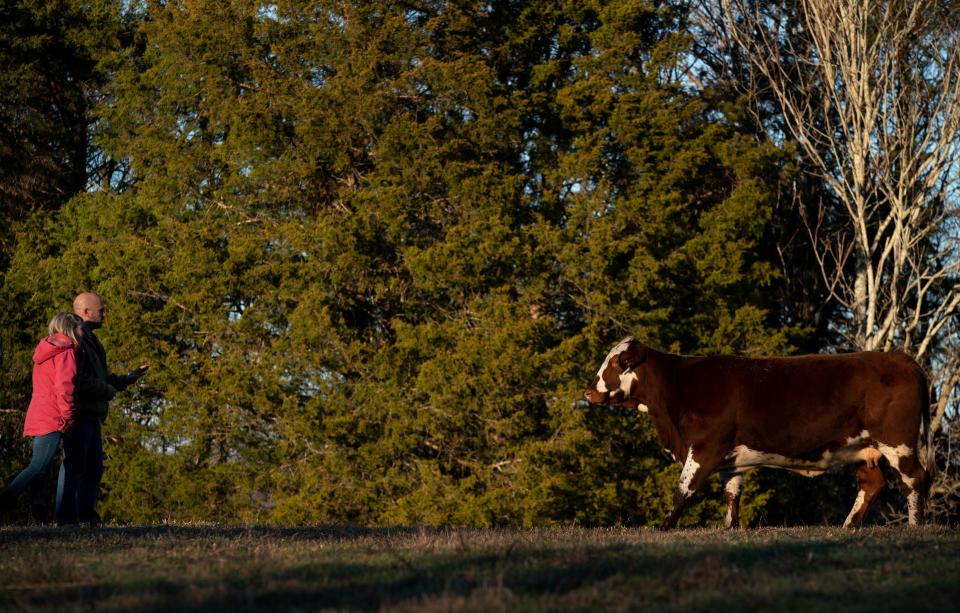
For months after they moved to their new farmhouse here in Lynnville, Tennessee, their youngest son walked the fence line of the property. He was watching for “bad guys.” And he was going to ward them off with the toy rifle he carried on his hip.
Psychologist Janie Berryman wrote in her testimony filed in court in May 2023 that this boy, now 11, has “expressed that police officers are the ‘bad guys.’”
“[He] felt better when they moved because they were further away from everybody, but he had that feeling that [law enforcement] were going to come get him next during that process,” Berryman wrote.
The experience has left all members of the family with a deep mistrust of the government, and law enforcement in particular, Julie and Matthew Hopkins said. Berryman also diagnosed them with post-traumatic stress order due to the incident.
“It’s just not what it was, once upon a time,” Matthew Hopkins said.
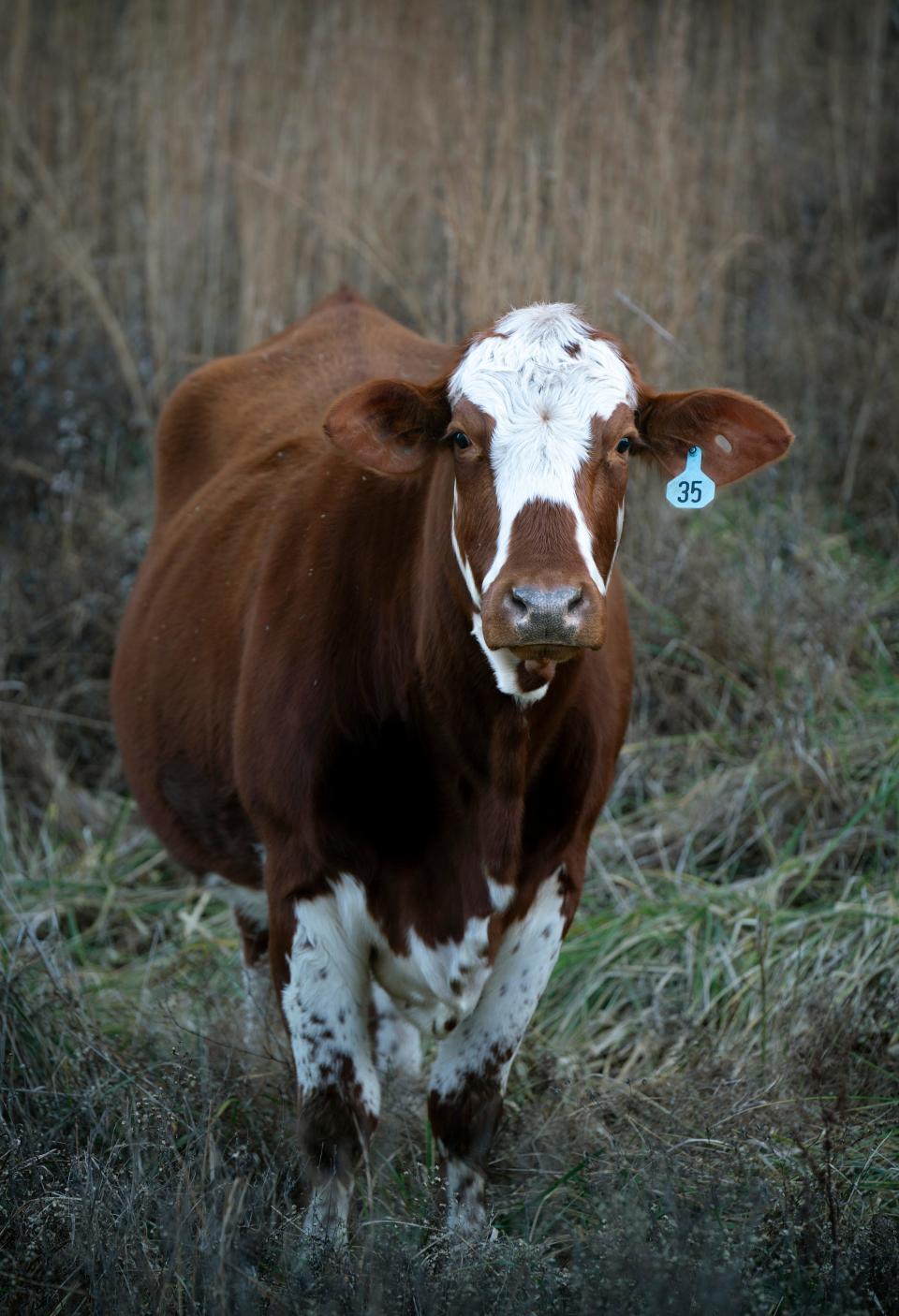
At the same time, it’s inspired them to make a change. The son who played sentry around the farm wants to be an attorney, his parents said. He took it upon himself to learn all the amendments to the U.S. Constitution. Matthew Hopkins successfully ran for the Giles County Commission in 2022, a foray into local politics prompted by what his family went through in Marshall County.
“You're asking me why I got involved in politics,” he said. “Because I've either got to accept it, or I've got to change it. And I'm not gonna be part of the system that screws it up for my kids. I’ve got two kids. I'm going to show them what's right.”
Evan Mealins is the justice reporter for The Tennessean. Contact him at emealins@gannett.com or follow him on X, formerly known as Twitter, @EvanMealins.
This article originally appeared on Nashville Tennessean: Tennessee sheriff seized cattle without warrants, must pay $485K

